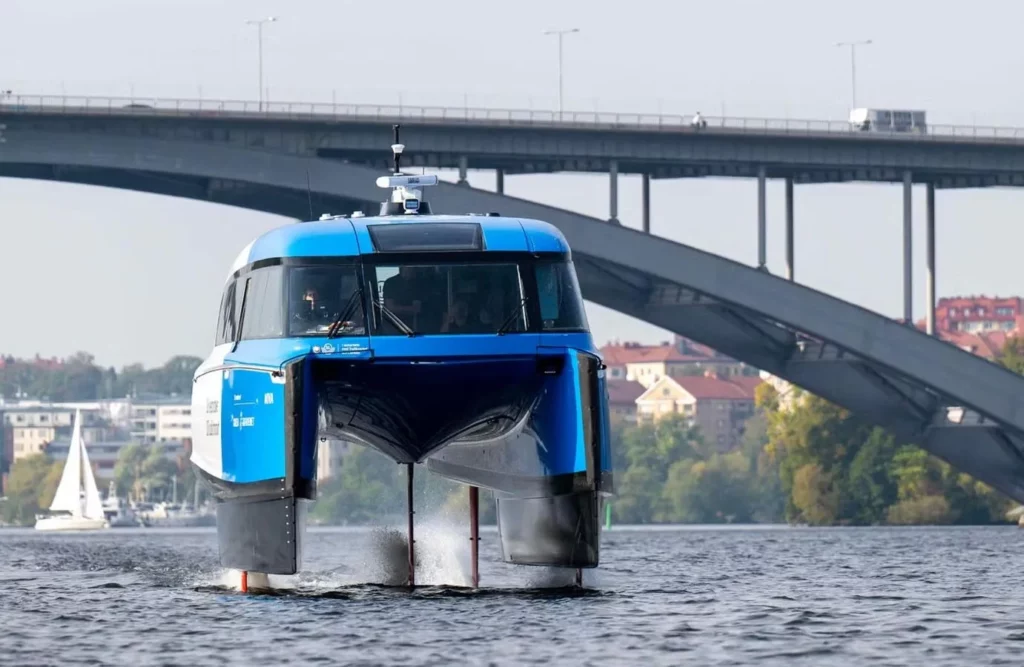
Title: Can Candela Get Commuters Out of Cars and Onboard with Electric Ferries?
Candela, a Swedish startup, has unveiled its innovative electric ferry technology, which could potentially revolutionize the way we travel. The company’s goal is to shift significant road traffic back to waterways, leveraging the enormous potential for fast, low-cost, and emission-free transport that can relieve road networks and connect communities.
The idea of using ferries as public transportation is not new, but Candela has taken it a step further by designing an electric ferry that can operate at speeds similar to traditional buses. The P-12 model, which has already been launched in Berlin, Germany, and will soon start operations in Lake Tahoe, USA, boasts impressive specs: 25 knots of speed, a range of 40 nautical miles at top speed, and the ability to seat 31 passengers.
One of the most significant advantages Candela’s solution offers is its potential to knit cities together and connect new neighborhoods. Imagine having access to public transportation that allows you to live in scenic island areas or quieter suburbs while still being able to commute to the city center quickly and efficiently.
Candela’s vision is to create a “bus system on water.” They believe that by running smaller boats with more frequent departures across a wider network, they can offer a better service at a lower cost. This approach would not only reduce pollution and wake damage but also make public transportation a viable option for areas previously inaccessible.
In an age where sustainability is increasingly becoming a major concern, Candela’s technology has come just in time to help cities shift away from fossil fuels and towards cleaner alternatives. Their electric ferries are designed to be cheap to maintain and power-efficient, further reducing their environmental footprint.
But how feasible is this vision? Can it really get commuters out of cars and onto electric ferries?
One of the biggest challenges Candela faces is changing people’s perceptions about using ferries as a primary mode of transportation. Many cities have struggled with traditional ferry services due to limited capacity, infrequent departures, and lack of frequency. If Candela can prove that their technology addresses these issues, we may see a significant shift in how we travel.
While there are certainly many factors to consider, Candela’s innovative approach could be the game-changer cities need to create more sustainable, efficient, and connected communities.
Source: https://www.forbes.com/sites/nicolekobie/2025/04/10/can-candela-get-commuters-out-of-cars-and-onboard-with-electric-ferries/


